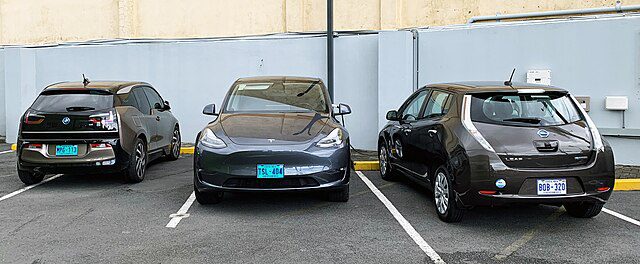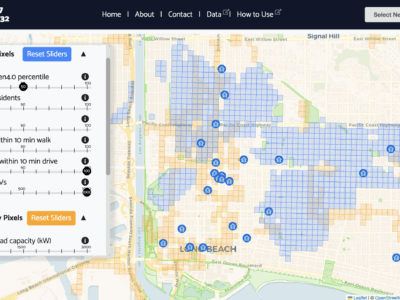Supply-Side Regulations & Clean Vehicles
As Congress votes to undermine California’s sovereignty to set supply-side standards on polluting vehicles, CLEE’s research shows why these policies are so effective

In May 2025, both the U.S. House and Senate passed resolutions to revoke California’s Clean Air Act waivers, which allow the state to enforce stricter vehicle emissions rules than federal standards (see Ann Carlson’s post on this issue). If signed by the President—and if successful in the face of court challenges to their dubious legality—these resolutions would nullify California’s authority to set stricter vehicle standards, potentially rolling back decades of environmental progress and affecting other states that follow California’s lead.
Yet California is just one of many jurisdictions around the world that uses supply-side regulations to accelerate clean vehicle markets. These policies require automakers to produce cleaner or more efficient vehicles.
Below is a non-exhaustive overview of jurisdictions around the globe that have adopted supply-side regulations:
- Fuel economy/efficiency standards: Brazil, Chile, China, India, Japan, United States (federal)
- Greenhouse gas (GHG) or carbon dioxide (CO2) emission standards: Australia, Brazil, Canada, China, European Union (supranational), India, United States (federal and state-level)
- Zero-emission vehicle (ZEV) sales requirements: Canada (federal and province-level), China, United States (state-level), United Kingdom
UC Berkeley’s Center for Law, Energy and the Environment (CLEE) now has a working paper that seeks to explain why policymakers like in California are choosing this policy approach by examining the evidence and theory underpinning them and the design strategies that have helped to address industry challenges. Among the key reasons, supply-side regulations can:
-
- ensure that automakers invest in new clean technologies over incumbent technologies;
- create market certainty to accelerate growth in clean technologies;
- encourage the development of supportive fueling infrastructure;
- create self-financing markets without reliance on public funding;
- support global competitiveness of local industry; and
- reduce fossil fuel dependency.
The working paper, submitted at the 38th International Electric Vehicle Symposium (EVS 38), cites several sources to exemplify the 6 key reasons. For instance, supply-side zero-emission vehicle mandates were a key driver of the increased scale of zero-emission vehicles in China, the world’s largest electric vehicle producer, along with an important decrease in battery costs. Another example is Tesla’s early success using its revenue the company earned from the sale of zero-emission vehicle credits (accounting for 5-10% of the firm’s total revenue most years) to finance the clean vehicle markets without reliance on public funding. The credit system also allows other companies to comply with the rules without needing to sell electric vehicles, potentially lowering their compliance costs by letting these firms buy credits from others.
Policymakers have increasingly favored supply-side vehicle regulations as a means to reshape the transportation sector in the public interest. By requiring manufacturers to produce cleaner and more efficient vehicles, these standards help ensure that automakers’ interests are in line with broader societal goals. This approach leverages private investment and technological innovation to deliver cleaner air, lower consumer costs, and advance efforts to meet climate targets. As governments intensify efforts toward zero-emission vehicles, supply-side programs can play a more prominent role.
We are planning follow-up research to incorporate anonymized insights from regulators who have adopted and implemented these policies. While Congress may slow California’s approach to supply-side regulations, the arguments in favor of these types of policies point to continued momentum to adopt them, both in the U.S. and globally.







Reader Comments